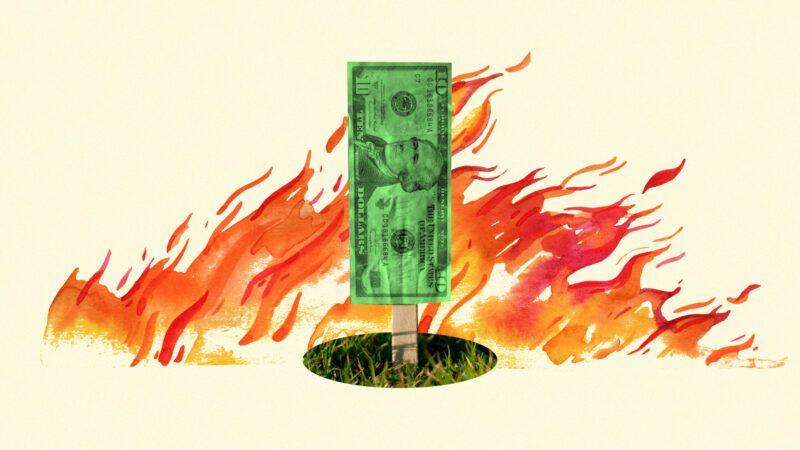Ron Bailey: Will $370 Billion in Green Energy Subsidies Make Any Difference?
Science Correspondent Ronald Bailey surveys the provisions within the recent Inflation Reduction Act aimed at curbing U.S. greenhouse gas emissions.

In July, President Joe Biden delivered a speech at a decommissioned coal-fired power plant in Somerset, Massachusetts, following record-breaking heat waves in both the United States and Europe. In his remarks, he said that "climate change is an emergency" and "a clear and present danger to the United States."
This wasn't the official declaration of a national emergency that progressive climate activists had hoped for. But it was a form of lip service to their demands.
Now, less than a month later, a legislative deal between Sen. Joe Manchin (D–W.Va.) and Senate Majority Leader Chuck Schumer (D–N.Y.) would put $370 billion in new federal spending toward tackling climate change.
That deal, dubbed the Inflation Reduction Act, is a successor to the Build Back Better spending plan that Democrats fought over and failed to pass for the last year. The $370 billion figure is less than progressive activists originally wanted, but it nonetheless represents both the single biggest component of the Inflation Reduction Act and massive increase in the size and scope federal climate spending.
The bill has yet to pass, but Democrats are already arguing that it could be a pivotal moment for climate and energy policy, as well as for the political fortune of Biden's flagging presidency.
That's the topic of this week's episode of The Reason Rundown With Peter Suderman, featuring Reason Science Correspondent Ronald Bailey.
Mentioned in this podcast:
"Are the Inflation Reduction Act's Climate Goals Plausible?" by Ronald Bailey
"President Biden Asserts 'Climate Change Is an Emergency'," by Ronald Bailey
"More Heat Waves But Falling Heat Mortality in U.S.," by Ronald Bailey
Audio production and editing by Luke Allen; produced by Hunt Beaty

Show Comments (26)